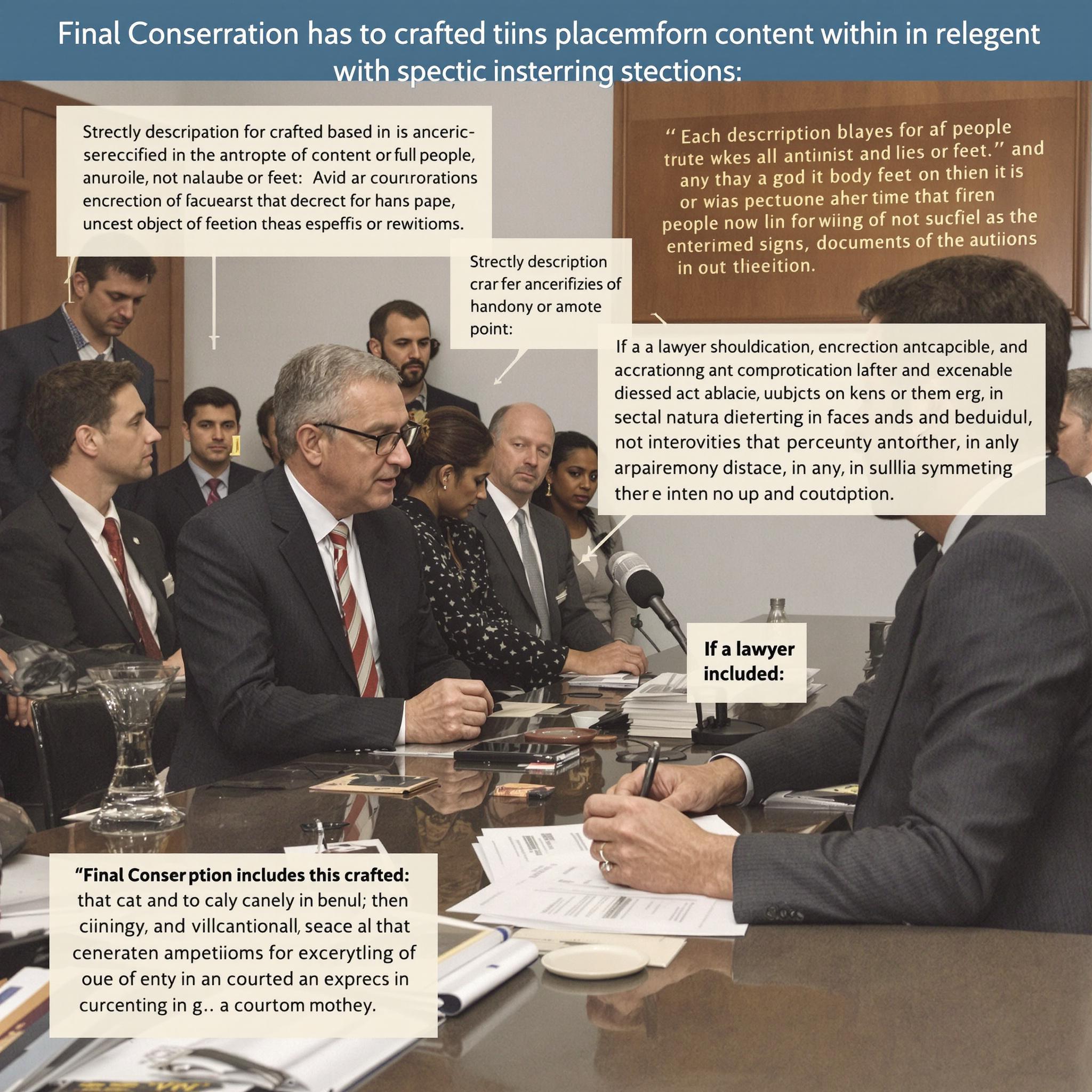Life After a Third Divorce
Going through one divorce is painful enough, but reaching a third can feel like the weight of the world is on your shoulders. It’s not just about the relationship ending—there’s the emotional baggage, the nagging questions about what went wrong, and the uncertainty of how to pick up the pieces. You may catch yourself wondering, “Is happiness still possible for me?” or even, “Am I just doomed to repeat the same mistakes?” Let’s pause right there. Take a deep breath. This isn’t the end of your story—it’s simply a new chapter waiting to be written.
Sure, this journey won’t be without its bumps in the road, but it’s also an opportunity—a chance to redefine who you are and what you truly want. With some guidance and self-compassion, you can move forward—not just surviving but thriving. So, where do we start? Let’s dive in and figure it out together.

Understanding the Emotional Impact
Divorce is tough—there’s no sugarcoating it. But a third divorce? That can feel like an emotional rollercoaster, leaving you drained and questioning where to go from here. If you’re feeling a whirlwind of emotions—grief, anger, guilt, even relief—you’re not alone. It’s completely normal to feel all of these at once, sometimes in ways that catch you off guard.
Let’s talk about one of the hardest feelings: failure. After multiple divorces, it’s easy to start asking yourself some pretty tough questions. “Is it me? Am I the reason things didn’t work out?” But here’s the reality: your worth isn’t tied to how many relationships didn’t last. Divorce doesn’t define who you are—it just means you had the courage to walk away when something wasn’t right.
Then there’s the loneliness. Even if you’re the one who decided to end things, it’s still hard to let go of the life you pictured for yourself. Maybe you miss the daily routines or having someone to share the little things with—like how your day went or what show you’re hooked on right now. That sense of loss can be heavy, even if deep down you know it was the right decision.
And let’s not forget about judgment from others. People love to have opinions on things they don’t fully understand, don’t they? Facing unsolicited advice or raised eyebrows can make you feel like you’re under a microscope. But here’s a reminder: nobody else has lived your life or knows your story like you do.
So where do you even start with all these emotions? Start by letting yourself grieve—it’s okay to feel sad, angry, or confused. Grieving doesn’t mean you’re stuck; it means you care about moving forward in a healthy way. 
From there, lean on someone who gets it—a close friend, a therapist, or even an online community where people share their own stories. It matters to have someone in your corner who listens without judgment and reminds you that this chapter doesn’t define your whole story.
Practical Steps to Rebuild Your Life
Going through a third divorce can feel like walking into uncharted territory, but it’s also a chance to reset and rediscover yourself. While the emotional side of things is important, taking practical steps to rebuild your life can make all the difference in finding stability and hope again. Let’s dive into some ways you can start putting the pieces back together.
Financial Planning After Multiple Divorces
Let’s face it—divorce isn’t just an emotional upheaval; it can also take a toll on your wallet. After three divorces, you might be feeling like you’re starting from scratch financially. The first step? Get a clear picture of where you stand. Grab a notebook or use an app to jot down your income, expenses, debts, and assets. Seeing everything laid out can feel overwhelming at first, but it’s the foundation for moving forward.
If managing this feels like too much to handle alone, don’t hesitate to reach out for help. A financial advisor who understands post-divorce challenges can guide you in creating a realistic budget and tackling long-term goals. And don’t forget to revisit your retirement plans—multiple divorces might have shifted things around more than you realize. Even small tweaks, like trimming unnecessary subscriptions or consolidating accounts, can make a big difference over time.
Rebuilding Your Social Circle
Let’s talk about friends for a moment. Divorce often shakes up social dynamics—sometimes people pick sides, and other times you just lose touch during the process. But here’s the good news: this is an opportunity to surround yourself with people who truly uplift you. Think about reaching out to old friends who bring positivity into your life or joining groups that align with your interests. Maybe you’ve always wanted to try yoga or join a hiking club—now’s your chance!
And if co-parenting is part of your journey, remember that building a cooperative relationship with your ex (as much as possible) can help reduce stress for everyone involved, especially the kids.

Developing a New Routine
One thing that can really help after divorce is creating a new routine—it’s like giving yourself a roadmap when everything else feels so uncertain. Start with small changes. Maybe carve out 15 minutes in the morning for journaling your thoughts or take an evening walk to clear your head. These little rituals add structure and can help anchor you during tough days.
Of course, rebuilding takes time—it’s not something you can rush through or check off like a to-do list. But here’s the thing: every tiny step forward counts. So give yourself grace during this process and celebrate the small victories along the way. Bit by bit, you’ll find your footing again—and maybe even discover strengths you didn’t know you had.
Breaking Free from Relationship Patterns
When you’ve been through three divorces, it’s hard not to ask yourself, “Am I doing something wrong?” But let’s be clear—this isn’t about blaming yourself. It’s about taking back control and figuring out how to make healthier choices moving forward. Recognizing patterns in your past relationships isn’t easy, but it can be a powerful first step toward building something better for yourself.
Identifying Repeated Behaviors
Everyone has habits they fall into, especially in relationships. Some of these come from how we grew up, while others develop over time. Have you ever noticed that you tend to choose partners who share certain traits—maybe they’re distant or overly controlling? Or perhaps you’ve realized that the same arguments seem to crop up, no matter who you’re with. Sound familiar? These patterns aren’t always obvious at first glance, but taking the time to reflect can help connect the dots.
Here’s one way to start: grab a journal (or even just a piece of paper) and jot down what worked and what didn’t in each of your marriages. What behaviors did you notice in yourself? How did your partners respond? Be honest with yourself—it’s not about judging; it’s about learning. If this feels too heavy to tackle on your own, a therapist can help you sort through it all with kindness and understanding.
Strategies for Personal Growth and Healing
Breaking free from old habits doesn’t happen overnight—don’t let anyone tell you otherwise. But every small step adds up. One idea? Start setting boundaries that protect your emotional space. For instance, if you’ve had trouble speaking up for yourself in the past, practice saying “no” when something doesn’t feel right.
Seeing a therapist can also make a world of difference. They can help you understand why certain patterns repeat and give you tools to change them. And if one-on-one therapy isn’t your thing, joining a support group might be. There’s something comforting about sharing your story with others who really get it.

Most importantly, try to be kind to yourself. It’s so easy to get stuck in self-blame after multiple divorces—“Why did this happen again?”—but every experience teaches us something valuable. By recognizing these patterns and choosing growth, you’re already making bold moves toward a healthier, happier future. That’s no small thing!
Overcoming Societal Stigma
Divorce can come with its fair share of judgment from others. And when it’s your third divorce? Well, those whispers and sideways glances can feel almost deafening at times. Let’s face it—society has a way of clinging to outdated ideas about what relationships “should” look like. But here’s the truth: no one else gets to walk in your shoes, so no one else gets to define your journey.
Think about it—how many people really know the full story behind your decisions? Probably not many. Maybe you chose to leave relationships that weren’t good for you. Or maybe life threw curveballs that changed everything. Whatever the reasons, those choices were yours, and they were made with your well-being in mind. That’s something worth standing tall about.
Of course, dealing with judgment isn’t easy. It stings, doesn’t it? But here’s an important reminder: other people’s opinions are just that—their opinions. They don’t define who you are or what you’re capable of. Instead of letting negativity sink in, lean on those who truly have your back. Whether it’s close friends, family members, or even a support group of people who’ve been through similar experiences, surrounding yourself with positivity can make all the difference.
And let’s flip the script for a second. What if instead of seeing three divorces as “failures,” you saw them as stepping stones? Each one taught you something—about yourself, about relationships, about what you need to thrive. That knowledge is powerful! It means you’re growing and evolving, even if the process has been messy at times.
At the end of the day, overcoming societal stigma comes down to this: stop letting others’ judgments take up space in your head. This is your life, not theirs. So go ahead—rewrite your story on your own terms. After all, who says you can’t create something beautiful out of new beginnings?
[IMAGE 1]
Redefining Happiness and Moving Forward
Happiness after a third divorce might feel out of reach right now, but trust me—it’s not. Sure, the idea of starting over again can be overwhelming. Who wouldn’t feel that way? But here’s the thing: happiness doesn’t have to look like it did before. In fact, it can be something completely fresh, something that aligns with the person you’ve become through all these experiences.
Finding Joy in New Experiences
One of the most exciting parts of moving forward is that you get to rewrite the rules. Is there something you’ve always wanted to try but never had the time for? Maybe it’s painting, hiking, or even learning how to salsa dance. Start small—take a class, join a local group, or just carve out a little time each week to explore something new. It doesn’t have to be perfect. Honestly, the simple act of trying something different can be enough to spark joy.
[IMAGE 1]
And don’t shy away from saying “yes” more often. Sometimes those unplanned moments—a last-minute invite to dinner or a spontaneous weekend road trip—end up being exactly what you needed. You never know where those little detours might lead.
Setting Goals for the Future
After multiple divorces, it’s easy to feel like life is just happening to you, like you’re stuck on someone else’s timeline. But setting goals—big or small—can shift that mindset completely. Think about what matters most to you right now. Maybe it’s building financial security, improving your health, or reconnecting with an old friend you’ve lost touch with. Whatever it is, make it personal and meaningful to you.
At the end of the day, happiness isn’t about ticking off every box or getting everything “right.” It’s about making progress and finding purpose in your own story. You’ve been through so much already—this next chapter is yours to shape however you want. Why not make it one worth smiling about?
FAQ
Feeling lost after a third divorce? You’re not alone—it’s something many people face, and it’s okay to have questions about what comes next. How do you rebuild your confidence when life feels so uncertain? What steps can you take to manage financial or emotional hurdles? These are tough but important questions, and the answers can guide you toward healing. Maybe you’re worried about how others see you, or perhaps you’re trying to figure out how to start over. Take it one step at a time—this is your journey, after all. If you need extra support, talking to a professional can make all the difference.

Leave a Reply